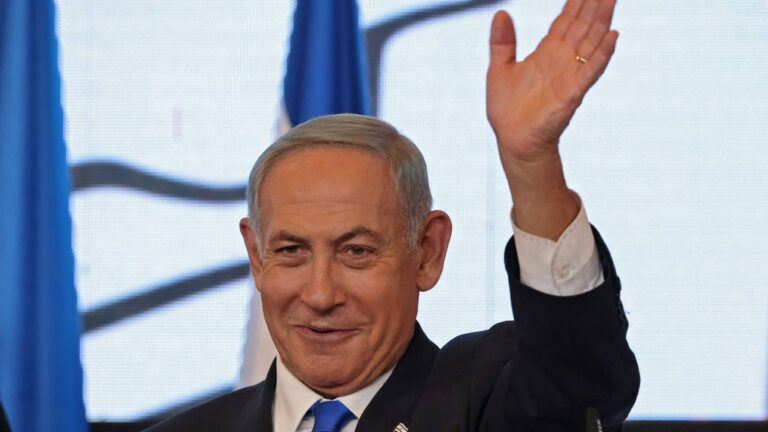
Israel is set to swear in its most right-wing government in its history on Thursday, stoking fears among its Arab citizens of a resurgence of racial violence in mixed cities.
Veteran leader and prime minister-designate Benjamin Netanyahu was returned to power on the back of his alliance with ultra-Orthodox and far-right parties, which are expected to usher in a wave of changes to Israeli laws, including measures to expand and legalise settlements and outposts in the occupied West Bank.
Widespread concern has already been voiced following the bloodiest year in the Israeli-Palestinian conflict since the Second Intifada in 2005.
While most of the violence has taken place in the West Bank, Palestinian citizens of Israel fear that the new government will usher in more discrimination and stoke tension reminiscent of the mob violence that shook large parts of the country in May 2021.
“Every year Israel goes to the right, but this is extreme,” Suha Salman-Mousa, executive director of the Haifa-based Mossawa Centre, told The National.
Violence broke out in several areas of Israel in May 2021, fuelled by the assault on Gaza and tension in Jerusalem amid incursions on Al Aqsa and the East Jerusalem district of Sheikh Jarrah.
A state of emergency was declared in Lod, an Arab-majority area near Tel Aviv, which was placed under curfew after intercommunal violence left a Palestinian man dead, property destroyed and tension high.
In the northern city of Acre, Jewish and Arab businesses were the target of mob violence that was splintered along ethnic lines.
Clashes were also reported in Bat Yam and Haifa, long lauded as a coexistence success story in Israel.
Arab residents reported that tear gas had been used on them, apart from them being the target of mobs in Palestinian-majority districts in the city centre.
“Mixed cities have not forgotten what happened in May [2021],” Ms Salman-Mousa told The National.
“In Lod and Jaffa, extremists will have more courage to attack. This happened before, without the power that [Itamar] Ben-Gvir has now,” she said, referring to the far-right politician.
Arab or Palestinian citizens make up 20 per cent of Israeli society. While they are mostly well integrated into society and enjoy largely equal rights, they also face systemic discrimination.
‘Second-class citizens’
In 2018, the Nation State law stripped Arabic of its status an official language and cemented the position of Arabs “as second-class citizens”, according to Al Haq documentation centre in Ramallah.
The new government, headed by a prime minister still facing corruption charges, is expected to introduce more legislation enshrining right-wing positions.
The new laws are expected to exclude both Palestinians and liberal Israelis, including non-Orthodox converts to Judaism and women fighting for egalitarian prayer at the Western Wall.
“It is not only a threat to the Palestinian community, but to democracy and human rights. I don’t know how these values can go alongside Jewish and democratic values,” said Ms Salman-Mousa.
One key figure in Israel’s new government is Mr Ben-Gvir, a politician who has sat at the top of concerns of Israel’s veer to the right over his incendiary views on Palestinians.
The incoming public security minister, who will now head Israel’s police force, has called for Palestinian citizens to be stripped of their citizenship and the death penalty to be reintroduced for terrorists.
:quality(70)/cloudfront-eu-central-1.images.arcpublishing.com/thenational/L722INGWWCV7LUEAGXR2RX464I.jpg)
On Wednesday, the Knesset passed sweeping legislation to expand his powers as minister, allowing him to assume control of police and investigations policy, the Times of Israel reported.
Mr Ben-Gvir, who lives in the occupied West Bank, has been known for frequent visits to Al Aqsa compound.
Last month, he pledged to “do everything” to change the status of the site, currently under Jordanian custodianship.
Mr Netanyahu’s Likud party said on Wednesday that the status-quo would be maintained at Israel’s holy sites, but pledged to expand settlements in the occupied West Bank.
Jordan’s King Abdullah II has warned he has prepared for conflict if there is any change to their status.
“This is the spark for everything else,” said Ms Salman-Mousa. “If something happens in Jerusalem, it will spark in Gaza and the West Bank and this is what we are afraid of. This will happen, it is a matter of time.”
Updated: December 29, 2022, 4:01 AM